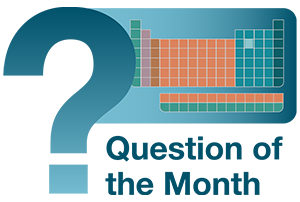
As WFH/Hybrid work has become more common, engineer workspaces are changing. Should professional engineers have test equipment at home? Take the poll and let us know, and if you have a lab at home, please tell us about it!

As WFH/Hybrid work has become more common, engineer workspaces are changing. Should professional engineers have test equipment at home? Take the poll and let us know, and if you have a lab at home, please tell us about it!
I think this is a very complicated question to unpack, but at the face of it, I would be very supportive of engineers having their own home labs. The difference between having equipment "at home" at not having the equipment can mean the difference between being able to explore possibilities on the weekend and doing your own experiments or having to wait to get into "the office". But of course, this points at a bigger thing - the home lab doesn't have to be used for work ... nor does it have to be funded by work. I know many who have decided to shell out money out of their own pockets just due to frustration of having to "wait" for answers or have their experiments sabotaged by the shared nature of lab equipment which can be frequently stolen or damaged (especially in an academic setting). Having it at home also allows you leisure to learn about automation and techniques which can make you more effective at work - especially for debugging and repair.
As someone who has been very fortunate with both RoadTest reviews and direct donations from vendors, my personal outlay has been relatively limited (mainly lower-end supplementary gear and accessories), but I am in a very fortunate position where my home lab (which is in my bedroom, literally) is actually better-equipped than my lab at work (although we're working to change this as we speak). Modern instruments have a lot of great features - such as web-based remote-front-panel capabilities and VNC remote-access which means that collaboration with test equipment has become a bit easier than trying to move a laptop around the room to get the webcam just at the right angle. The big plus is that because I know I take good care of my equipment - it's always there when I need it (and usually works).
I can't imagine a world the other way. A lot of my own personal interest has been enabled by having this test equipment at home - many organisations may not have such availability of equipment in a work lab and they would certainly frown on doing "personal" experiments in work time (especially those which might be somewhat dangerous). Further to that - I just don't see any substitute to hands-on time with an instrument in terms of becoming familiar with its operation (in spite of very detailed manuals being available).
It would be nice if companies were happy to sponsor and enable workers to have a home-lab, but the expense can be crippling and the logistics are not always straightforward due to the fragility, physical heft and (potential) calibration requirements. Sensitive work is also an issue, especially as the separation between work and private intellectual property can become quite troublesome - the rule in our organisation is that if you did it using our equipment, and you are an employee, then the IP would be claimed for the organisation regardless of the time in which it was developed.
In the end, I don't use any company-based equipment at home - because I don't have to! My colleagues often do, in which case the lower-cost items can be loaned from the lab. We have frequently done this to support field-based experiments and operations - so extending this to work-from-home is not a particularly big step. But whether there is enough "supporting infrastructure" is another thing - you lend out a power supply, then you realise you need a DMM, cables, test leads, an ESD mat, a grounding plug ... and then maybe you realise that a DSO would have been better. Sometimes having half-the-equipment is more frustrating than waiting ...
That's my (rather long) 2c ...
- Gough
From what I have observed there are two types of electrical engineers. Those who are passionate about electrical engineering in general, and those who do it as a job only. In my experience, If someone has a passion for electrical engineering they will have some form of home lab.
I'm a self-employed hardware consultant so I have to have my own lab. It is a mix of gear from surplus stores, things bought privately, things that I built myself, and (rarely) something I had to buy new (ouch!). For development software, I use FOSS almost exclusively, except where I can't